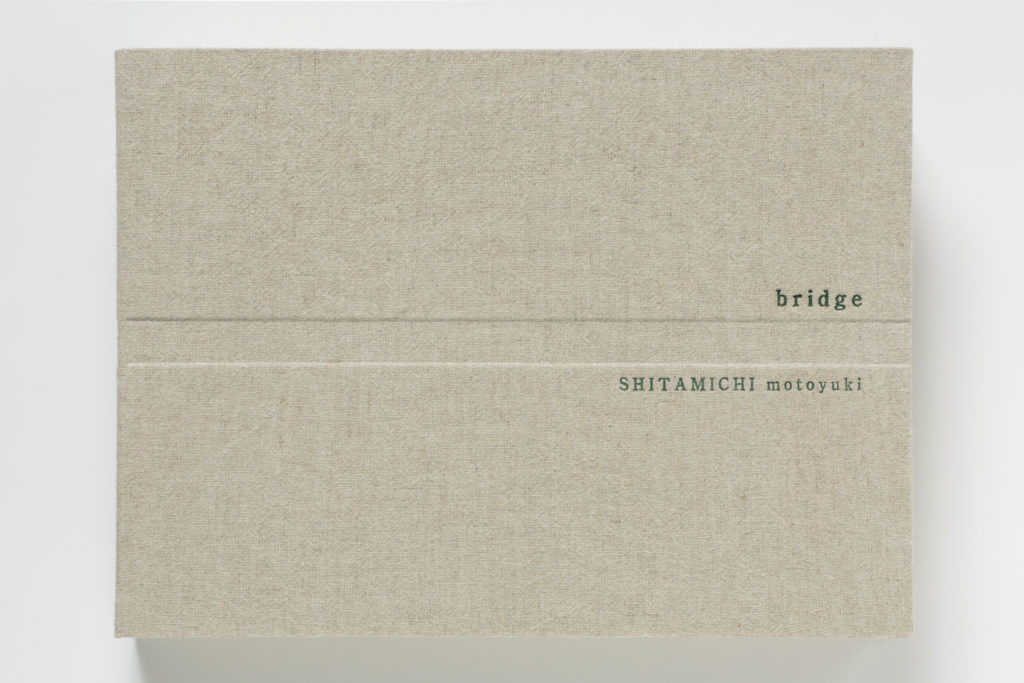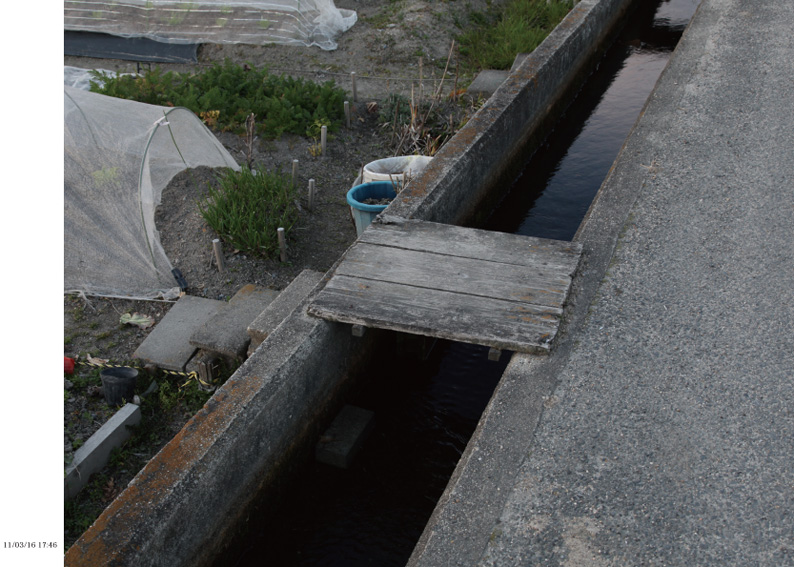
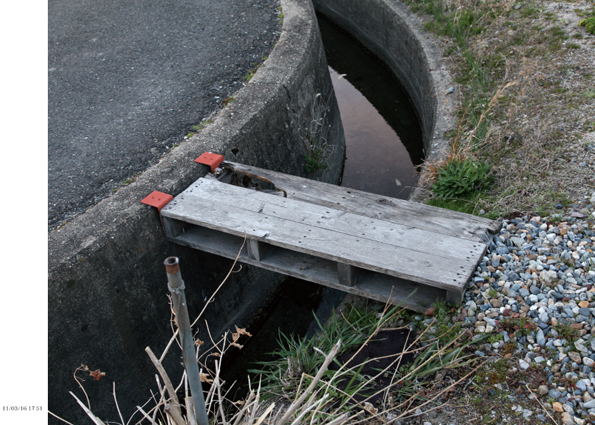
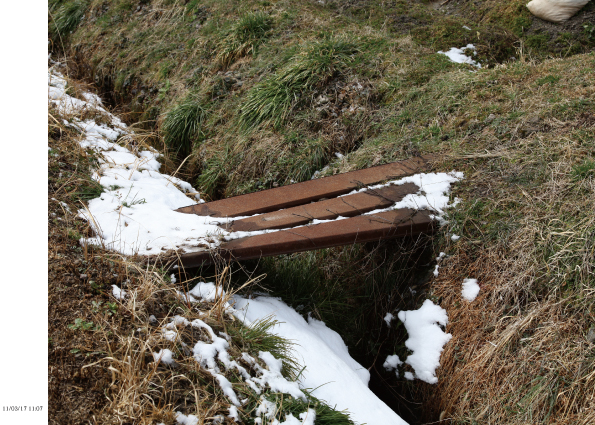
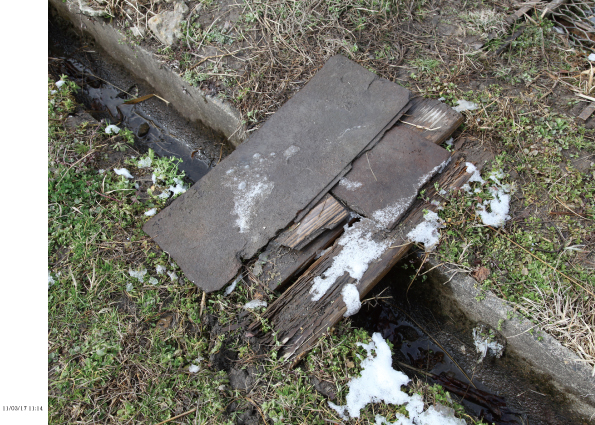
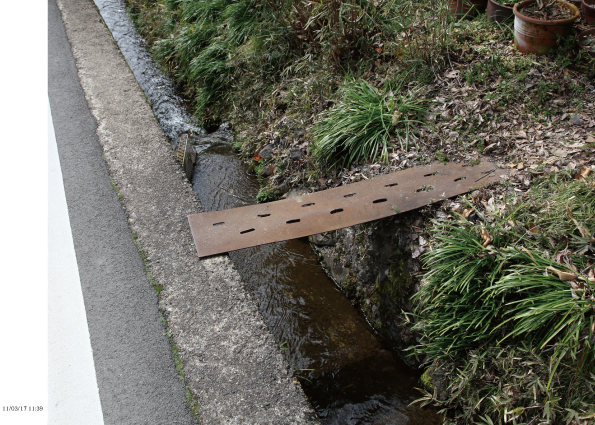
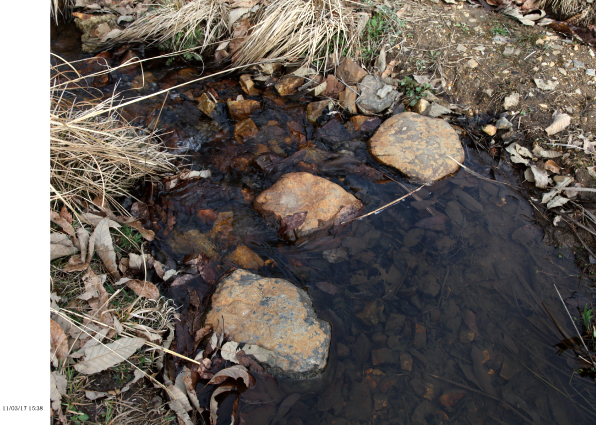
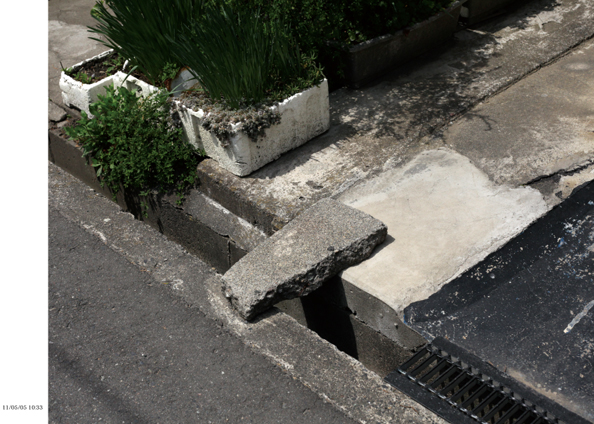
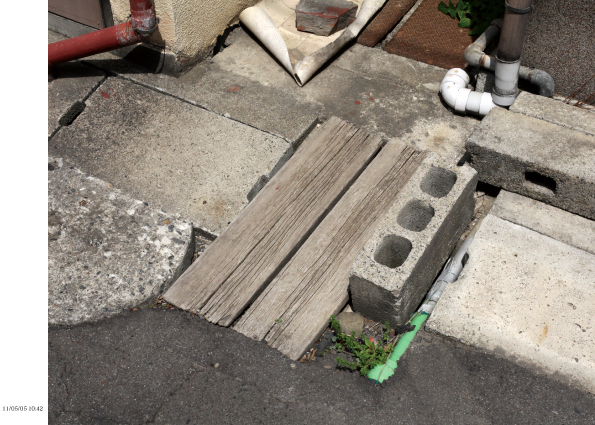
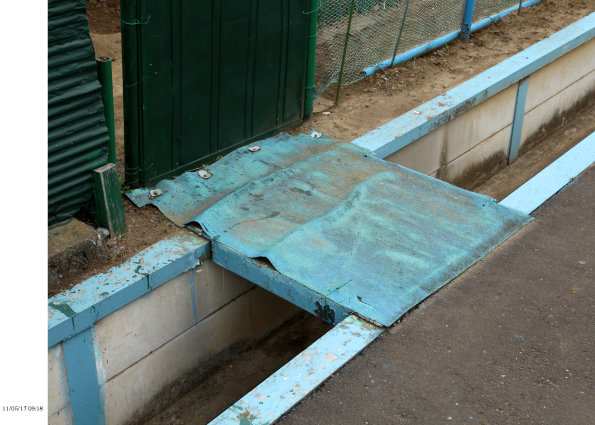
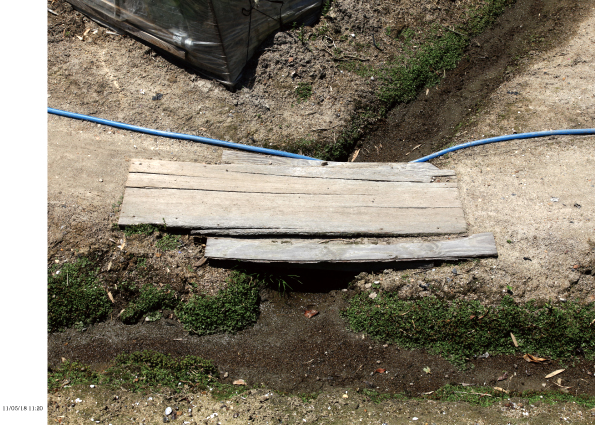
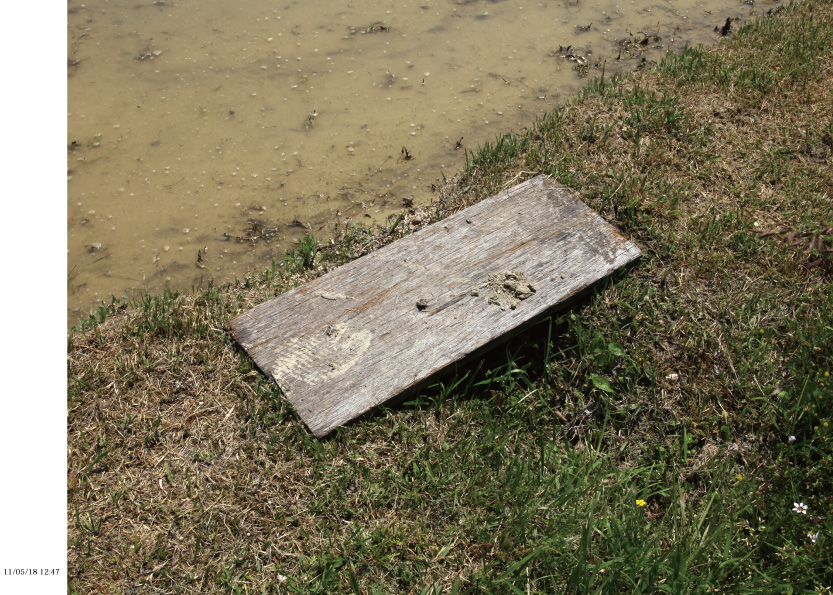
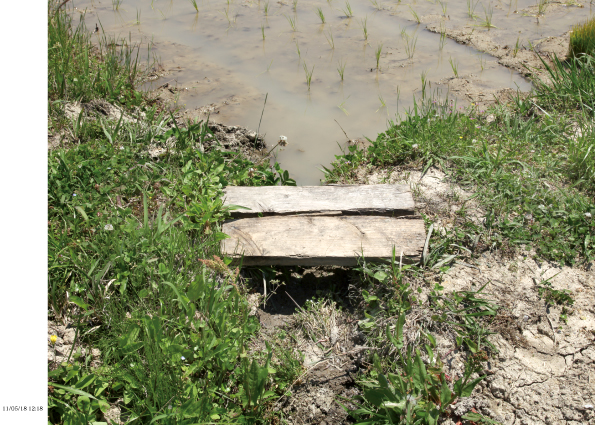
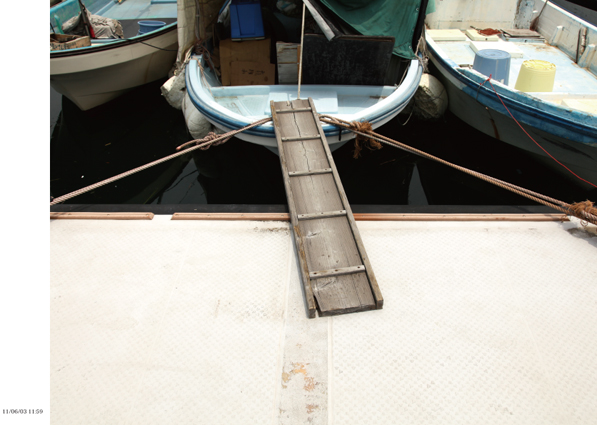
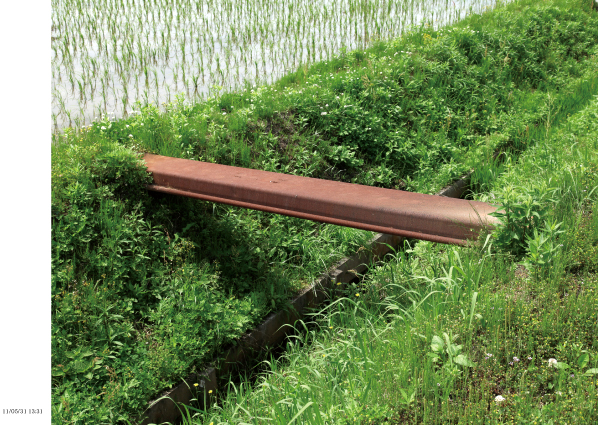
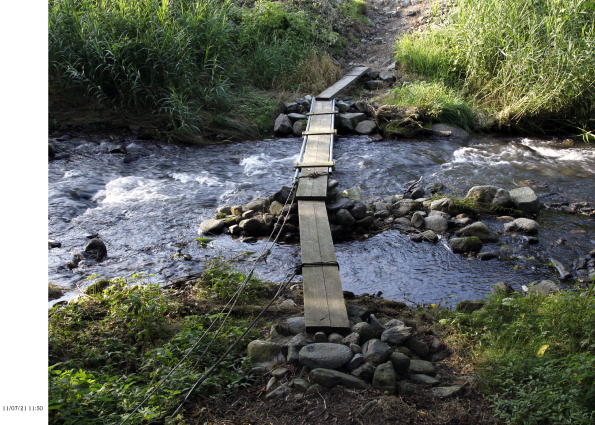
「橋のようなもの」
ある旅先で、道端の用水路に置かれた”板”が、道と生活とを繋ぐ小さな”橋”である事に気がついた。そう言えば、そこらじゅう”橋”だらけだった。これらを”橋”と呼べるのか?建造物?道具?インフラ?…
ただ、隔たりを越えるために架けられたモノたちで、たぶん生活/風景の必要最小単位の名も無い物体であり行為のひとつではないかと思う。([bridge]は動詞で“架ける“を意味する。)
風景はとても速いスピードで変化し続けている。身の回りにモノは溢れてる。建造物は巨大化する。情報や物流はスピードを加速させる。それらを拒否する事はほぼできない。使い込まれた道具を愛おしく見つめるように、この世界を眺めることはできるのだろうか?
写真家はあまりモノを産み出さない。この世界を正面から受け止め、愛おしく切なく時に痛い視点/まなざしを産み出すのではないか。「これは○○である」とパッケージ化/カテゴリー化/モニュメント化されていない、物体や関係性を視覚化するための小さなスイッチをそっとオンにする。見えない風景だから。
下道基行
“something like a bridge”
One day, I found something like bridge. Is this tool? structure? infrastructure? maybe this is connection.
Scenery is made up of nature and people’s lives, like layers on top of one another. Cities keep changing, consuming goods and information at an extremely fast rate. In this context, photographers may not be the most creative existences. They simply feel joy in turning their gaze on the scenery which sprawls before their eyes. Photographers receive this world/reality head-on and hence beget beautiful, wistful, and sometimes painful views of the world. Photographers turn on the small switch to visualize physical objects and connections which have not yet been neatly packaged, categorized, or monumentalized.
Shitamichi Motoyuki
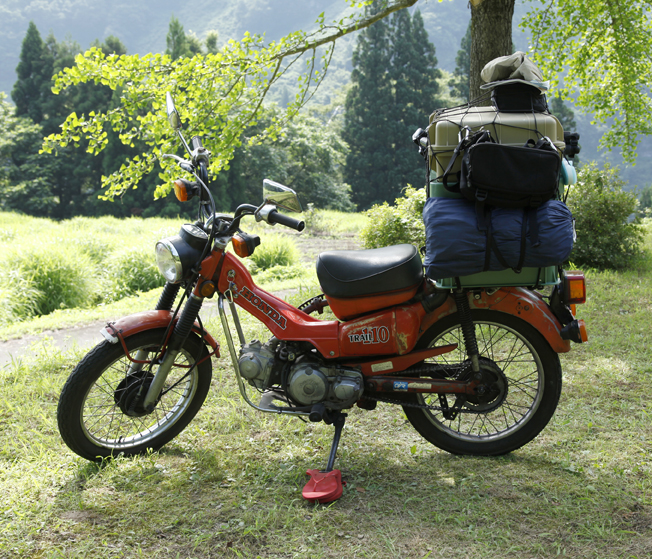
The massive earthquake hit eastern Japan, where a couple of hundreds far from the artist’s residence in Tokyo, in March 11th, 2011. Powerful tsunami deprived many fishing ports, towns, and people’s everyday lives, and a great number of people perished. Roads and railways to Tokyo were cut off, and plenty of tragic scenes and confused information were running on TV and Internet, everyday. The artist’s exhibition was cut short, and as an artist who used photography for his medium, he struggled if he should have taken the images of disaster. On March 16th, he started taking photos of “something like a bridge” over ditches. He purchased a small motorcycle and started his journey that took over 1200 miles in the end. It was a search for “something like a bridge.” It was in everywhere but too close to notice in daily life. He stopped by the stricken areas, but instead of taking landscapes to judge the areas, he focused on own foot. It can be anywhere and everywhere. In his images, we do not see direct messages for the disaster or a criticism of nuclear power, but find “a life/ the minimum unit on a nameless object in a landscape.”
ーーーーーーーーーーーーーーーーーーーーーーーーー
Solo exhibition [ bridge ]
αM Gallery
2011.Jul
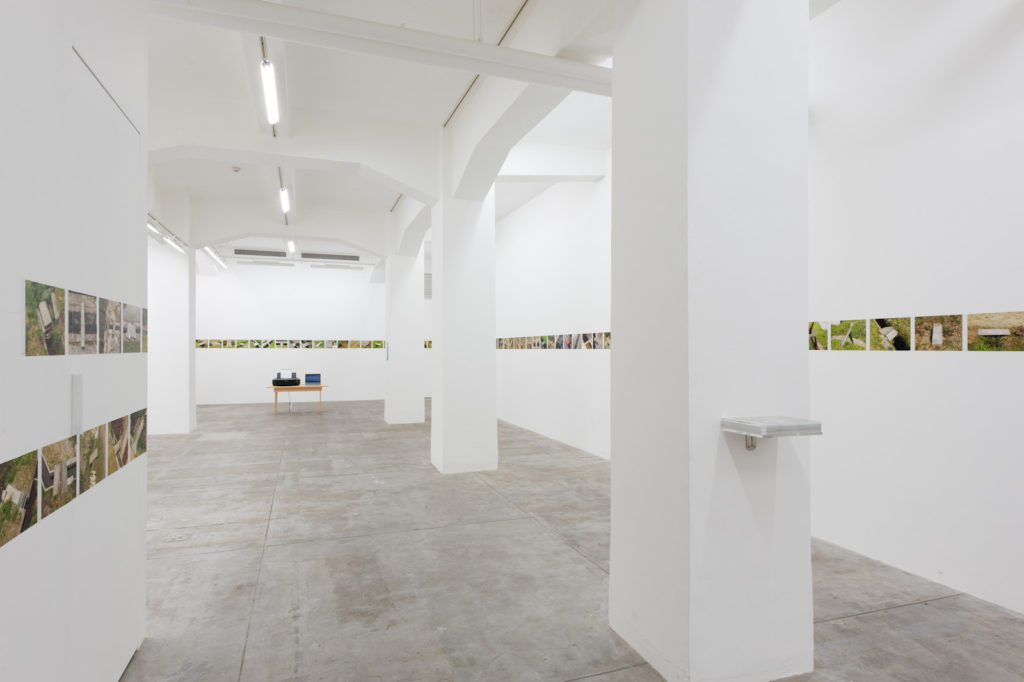
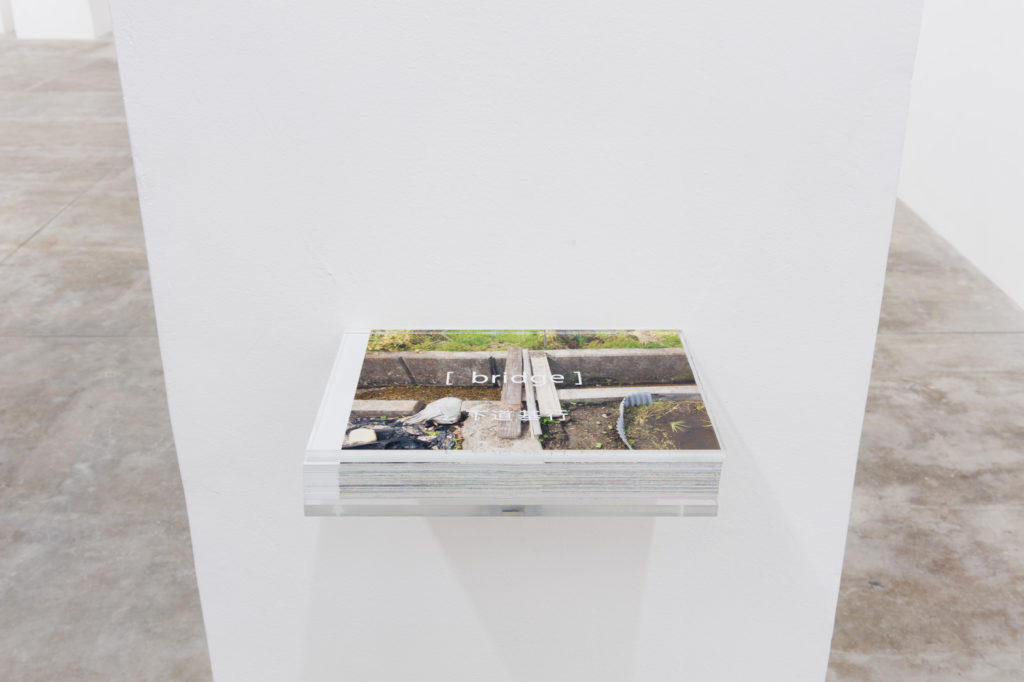
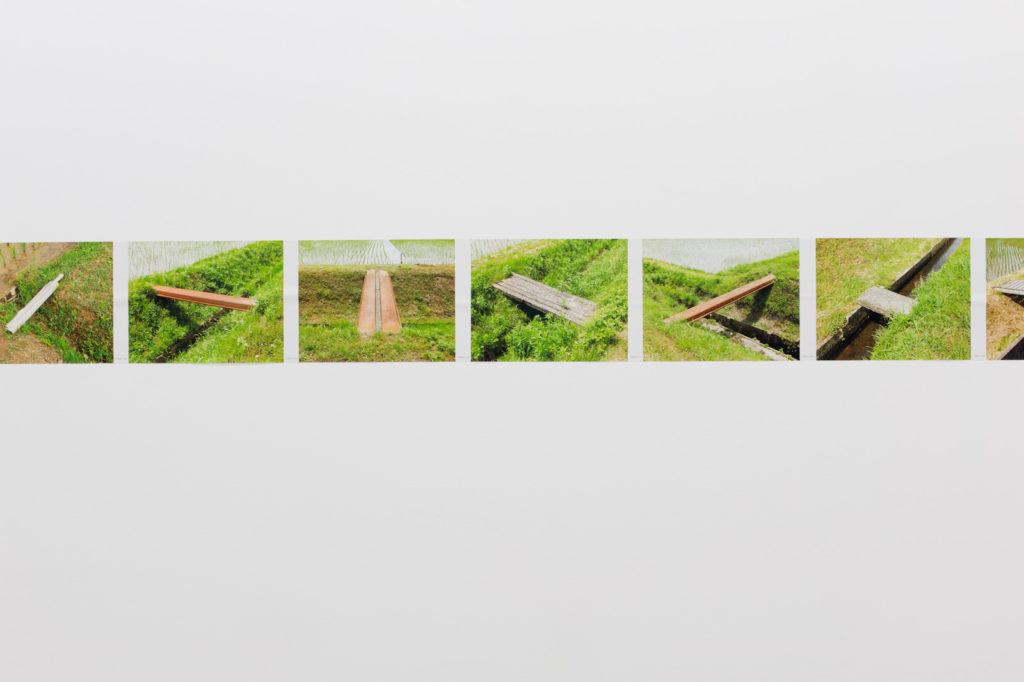
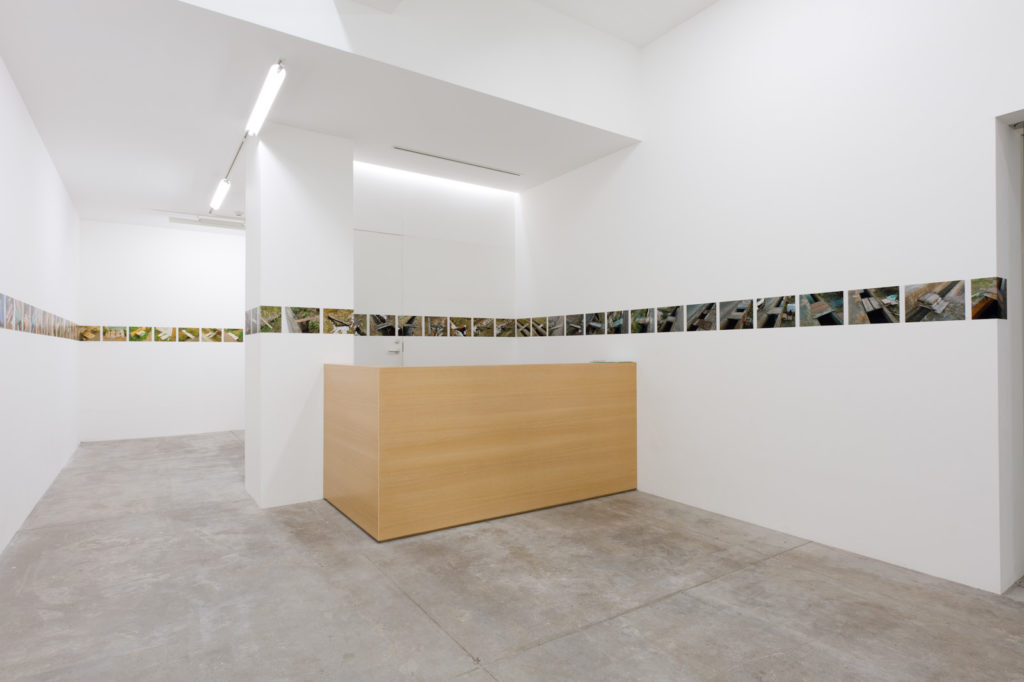
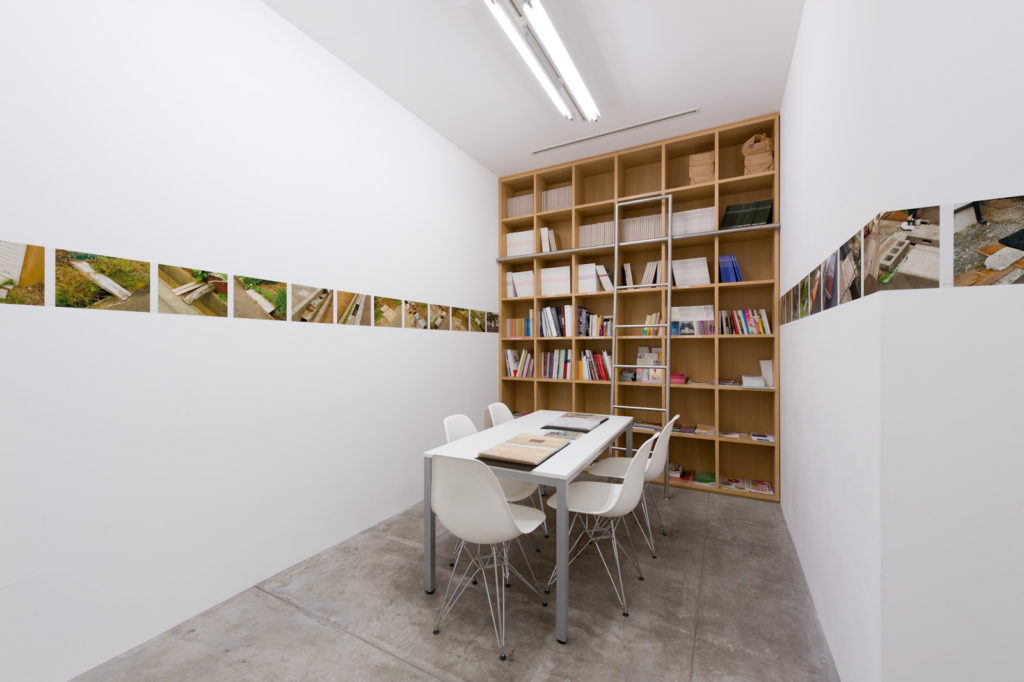
(photo by Ken Kato)
ーーーーーーーーーーーーーーーーーーーーー
●風に吹かれて
高橋瑞木(水戸芸術館学芸員)
本来なら、今回は第6回目のRe-Fortを元にした展覧会が開催されるはずだった。Re-Fortとは、下道が2004年より断続的に開催している、美術家や建築家など複数の参加者とともに、砲台跡や掩体壕といった戦争遺跡を再利用してイベントを行うアートプロジェクトのことだ。重い歴史を背負いながらも日常の風景に埋もれてしまっている戦争遺跡でイベントを発生させることで、戦争の記憶に対する私たちのリアリティを浮き上がらせ、問いを投げかける。そんなプロジェクトであり、作品だった。
冒頭に「はずだった」と書いたのは他でもない、3月11日に おこった地震と津波、そして原発事故によって、Re-Fort6の実現が頓挫してしまったからである。下道は今年の3月にαMで過去5回のRe-Fortの記録を紹介しながら6回目の参加者を募り、今回の展示に向けて6月にこのプロジェクトを実施する予定だった。プロジェクト中止には時間や物理的な理由が当然関係しているが、下道の心境の変化がやはり一番の要因だ。見知らぬ土地で大勢を集めて行うアートプロジェクトは、今彼がやることではなかった。
おそらく、今回の震災や原発事故を境に無数の「はずだったこと」が生まれた。では、喪失の誕生からひとは何を創造することができるのだろうか?
本展の会期中、下道は地震の後に購入した小さなバイクで日本国内を旅し、そこで出会った風景をギャラリーに置いてあるプリンターに随時送信する。プリンターから出力される風景は、下道からの投瓶通信であり、3月11日以前と以後、自分と世界の間を少しずつ繋げていこうとするアクションだ。まず、自分ひとりでできることからはじめる。速度を落としながら、移動する。そして、ていねいに自分の周囲を見回してみる。風はどちらの方角から吹いてくるだろうか?明日は雨だろうか?そんなささやかすぎる問いすら、少し意味が違って聞こえる日々の中で。
ーーーーーーーーーーーーーーーーーーーーーーーーー
Blown away
It was supposed to be the 6th exhibition based on Re-Fort project. Re-Fort is an art project that Shitamich has been working on intermittently since 2004. In the project, he and other participants, such as artists and architects, “reuse” war-remains of gun batteries and bunkers. Those war-remains had been buried under our everyday lives even the fact of tragedy those burdened. This project unburies the remains and evokes the reality of our memories regarding the war.
I said, “supposed to” in the beginning. It was because Re-Fort 6 was held up due to the earthquake and Tsunami occurred on March 11th and following accidents on nuclear plants.
Shitamichi was supposed to exhibit last five projects atαM in March, and would raise participants for the 6th project and implement the project in June. Timing and physical matters were parts of factor to suspense the project, but the biggest reason was Shitamichi’s change of his state of mind. The art project, which collects many people in an unknown town, was not a thing he would do at the time.
Probably, a lot of “supposed to” occurred since the day of the tragedy. Then, what can human beings create from the birth of the loss?
During the exhibition, Shitamichi will travel around japan with his small motorbycicle he purchased after the earthquake. Images of landscapes that he finds during the trip will be constantly printed out through a printer set in a gallery. Those prints will be sent from Shitamichi and it will be a one-way communication as known “message in a bottle.” This is an action to connect before and after the earthquake and oneself and the world little by lillte. First, do whatever you can. Slow down a little, and move. Then, carefully take a look around yourself. From which direction is a wind blowing? Will it rain, tomorrow? These questions may not mean anything, but can be sound differently if you listen carefully.
Mizuki Takahashi (a curator of Mito Art Center)
ーーーーーーーーーーーーーーーーーーーーーーーーー
Art book『bridge』
photograph+text: Moyoyuki Shitamichi
edit: Moyoyuki Shitamichi
design:Maruyama Masataka
length: 6300cm
publishing company: michi laboratory+circle-d
Publication year: 2015
edition: 5 (1/5 2/5 3/5 4/5 5/5)
写真/文章/編集:下道基行
装丁:丸山晶崇
発行:michi laboratory+circle-d
発行日:2015年
長さ:6300cm
製本:手製本蛇腹 箱入り
価格: ¥200000+税 (4/5,5/5はステップアップで販売)
部数:5部 (1/5 2/5 3/5 4/5 5/5)
“something like a bridge”
One day, I found something like bridge. Is this tool? structure? infrastructure? maybe this is connection.
Scenery is made up of nature and people’s lives, like layers on top of one another. Cities keep changing, consuming goods and information at an extremely fast rate. In this context, photographers may not be the most creative existences. They simply feel joy in turning their gaze on the scenery which sprawls before their eyes. Photographers receive this world/reality head-on and hence beget beautiful, wistful, and sometimes painful views of the world. Photographers turn on the small switch to visualize physical objects and connections which have not yet been neatly packaged, categorized, or monumentalized.
Shitamichi Motoyuki
「橋のようなもの」
ある旅先で、道端の用水路に置かれた”板”が、道と生活とを繋ぐ小さな”橋”である事に気がついた。そう言えば、そこらじゅう”橋”だらけだった。これらを”橋”と呼べるのか?建造物?道具?インフラ?…
ただ、隔たりを越えるために架けられたモノたちで、たぶん生活/風景の必要最小単位の名も無い物体であり行為のひとつではないかと思う。([bridge]は動詞で“架ける“を意味する。)
風景はとても速いスピードで変化し続けている。身の回りにモノは溢れてる。建造物は巨大化する。情報や物流はスピードを加速させる。それらを拒否する事はほぼできない。使い込まれた道具を愛おしく見つめるように、この世界を眺めることはできるのだろうか?
写真家はあまりモノを産み出さない。この世界を正面から受け止め、愛おしく切なく時に痛い視点/まなざしを産み出すのではないか。「これは○○である」とパッケージ化/カテゴリー化/モニュメント化されていない、物体や関係性を視覚化するための小さなスイッチをそっとオンにする。
下道基行
